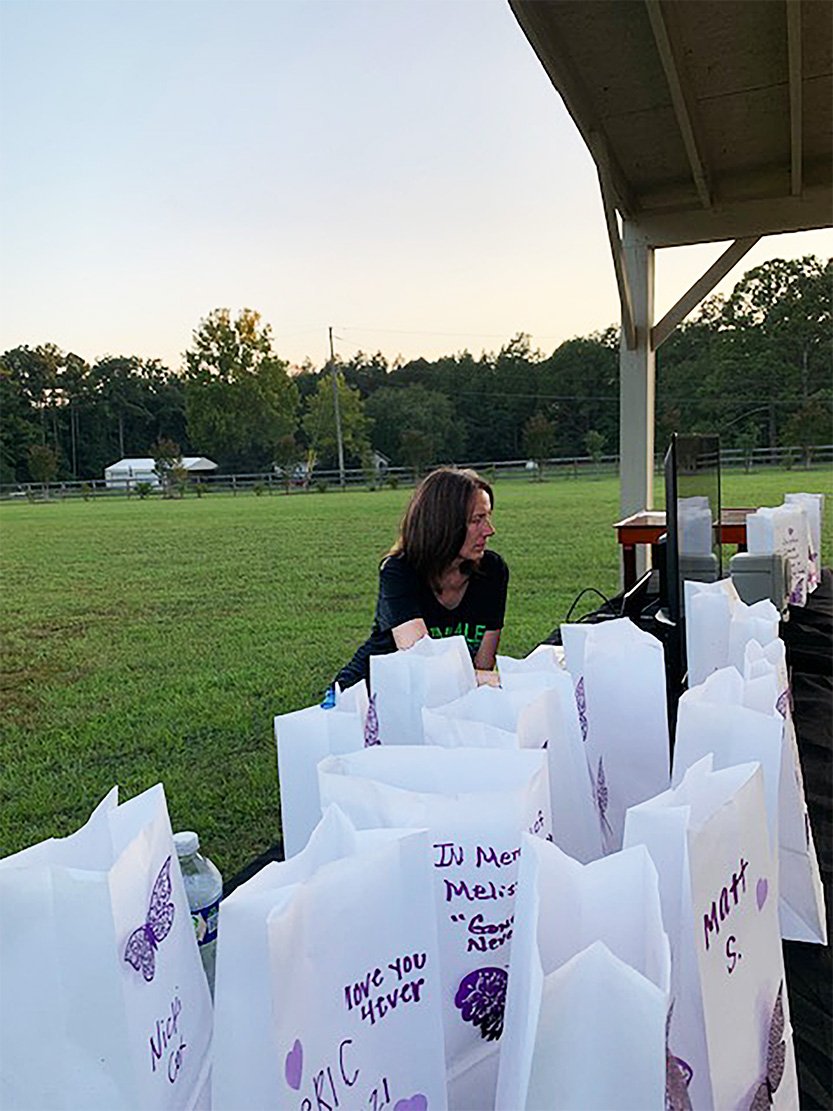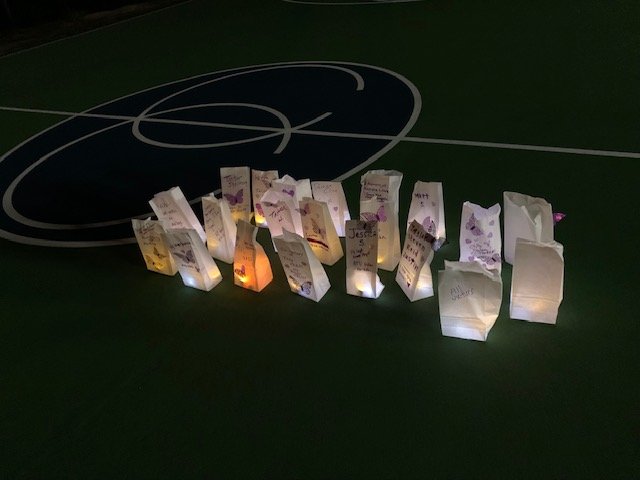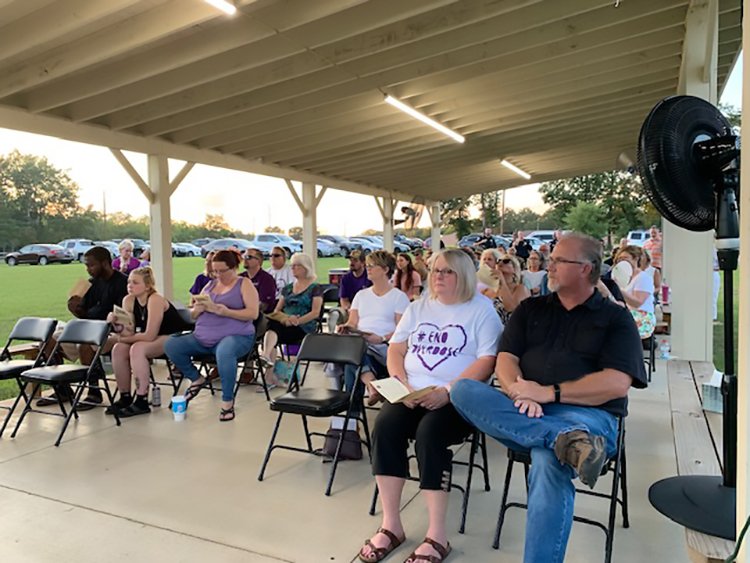The Courage Center
Though Chapin is growing at a rapid pace, its reputation as an idyllic, family-oriented, lake community holds firm. But within every community there are personal struggles. According to South Carolina’s Department of Alcohol and Other Drug Abuse, over 400,000 individuals in South Carolina struggle with alcohol and drug misuse, which also affects families and loved ones in significant ways. There is a definite need for easily accessible community-based resources especially since the county had the highest number of drug overdose deaths (125) ever recorded in 2022 (Lexington County Coroner’s Office). Fortunately, The Courage Center has recently expanded recovery services to include adults, after serving youth, young adults, and families since 2016.
The Courage Center (TCC) is an independent, non-profit organization that provides peer recovery support services, community education, outreach programs, resource navigation, and advocacy. TCC is staffed by those with lived experience-- meaning that staff and the majority of TCC’s board members have direct lived experience (and/or family experience) with addiction. All services provided at TCC are at no cost to the participant or to their families.
In addition to providing peer recovery services, TCC is engaged in innovative projects working to reduce the impacts of alcohol and drug use in the community. In late 2020, TCC was one of four national awardees to develop and test a strategy to reduce repeat overdoses. Since then, opportunities to test out new community solutions have been funded to include engaging those being released from jail or prison; participating with Lexington County EMS to visit those after a nonfatal overdose to share recovery options; and hosting pop-up events around the county to distribute life-saving products such as Narcan.



Most recently, TCC and its partners organized a community event at the First Baptist Church of Lexington for International Overdose Awareness Day. The event was sponsored by the Lexington County Coroner’s Office and agency leaders who participate in the county’s Overdose Fatality Review Committee. Family members submitted the names and pictures of their loved ones to be remembered and shown on the screen. Parents and family members of those whose loved ones died by overdose were also involved in planning for this day just as they had been for the past several years. The vast majority of overdose deaths are accidental as reported in the coroner’s report. Many were not aware that the lethal drug of Fentanyl was present in the drugs they used. The heartache of losing a loved one by overdose is devastating, but “feeling the community support at events like International Overdose Awareness Day really helps families heal,” said Randy Rush, the Executive Director of TCC.
TCC continues to work on reducing the stigma related to addiction and has developed a documentary about recovery that was showed in the media room at the statehouse. “Stigma is the #1 barrier our loved ones face to getting the help they need.” “This must be a movement,” said Rush, “Unfortunately too many families suffer in silence.”
Since inception, TCC has grown to seven full-time staff, many part-time recovery support specialists, and volunteers to help secure funds to sustain the organization. TCC is certified to train others to become peer recovery support specialists to work with those in recovery who need ongoing support, assistance obtaining basic needs such as housing or jobs, and new coping strategies. Lori P., a certified family support specialist who works with TCC is so pleased to have found an organization where she can share solutions with families affected by substance misuse who may have lost hope. “Five years ago I was a broken mother as my son was addicted to heroin,” Lori explains. “I believed at one point it was either death or recovery, but I knew that that was not my choice but his. So I thank God he chose recovery and will be celebrating his fifth year of being alcohol and substance free on September 11. He is also working in the field of recovery and he is doing incredible. I tell everybody that when he went into recovery; I did as well because I was just as sick as he was. That’s one of the reasons I am so thankful for The Courage Center.” She goes on to discuss the challenges created by addiction: “Drug use affects entire families in a complicated way. Most have no idea how to move forward when a loved one is misusing substances.” Family members usually want to fix the other person, and this can become particularly unhealthy when those using are youth or young adults. “Participating as a family support specialist at TCC is a way for me to share my personal experience, strength, and offer hope to family members who are walking a very difficult path”, she says. We’ve helped a lot of families and it is very rewarding.”
The past three years have created challenging conditions for many families, and the Surgeon General’s declaration of the youth mental health crisis in late 2021 includes substance misuse as well. To fill service gaps, TCC also contracts with licensed mental health counselors to ensure that evidence-based, therapeutic interventions are available at no cost to participants. “Our services are desperately needed,” said Trish England, TCC’s Peer Support Coordinator. “We have been able to touch many lives of those suffering from addiction as well as their families. We look forward to the day when seeking services for addiction is not attached to so much stigma.” The organization, which has its main campus on Park Road in Lexington, has expanded into a variety of locations including St. Jacob’s in Chapin at 7:00pm on Thursday nights.
While not all youth and young adults seen at TCC are able to make positive changes regarding alcohol or drug use, we do know that reducing the amount and frequency of substance use is a positive step. We turn our attention to Mike, who was 16 years old when a local high school referred him to TCC because of suspensions for vaping and smoking marijuana in the restrooms. He was doing poorly in school and seemed to lack motivation to complete school work. During intake, it was clear that Mike had experienced significant trauma in his life including his parents’ divorce, the sudden death of two grandparents, and a recent move to SC from another state with his mom and sibling. Through participation in a peer recovery groups and support from an individual recovery coach, Mike slowly began to make small changes. A transfer to a new high school in his junior year was a good move for him, and he became focused on his studies to move toward graduation. His mother also benefitted from the family group meetings to gain support for herself and to better understand how she could further support Mike’s positive choices.
In late July, Mike was getting ready for his senior year, working part-time, and giving real thought to his future. He had not used substances in nine months—something he and his mother celebrated with a trip abroad. While both know that young adulthood will be filled with temptation, Mike also recognizes his progress and how freeing it is not to be dependent on dangerous products. Also, he is considering attending a coaches’ training at TCC to help other struggling adolescents. “I’d like to help other guys my age recognize how debilitating drugs can be, they can lead you down a dark path pretty quickly,” he said. “Lots of good change has happened and I am proud of myself.” His mother agrees.
To learn more about TCC meetings, the organization, or to donate, go to couragecentersc.org or call 803.369.3905.








